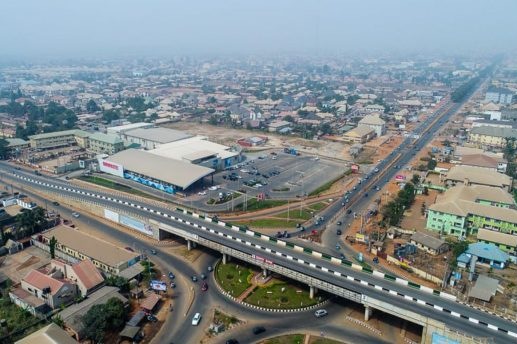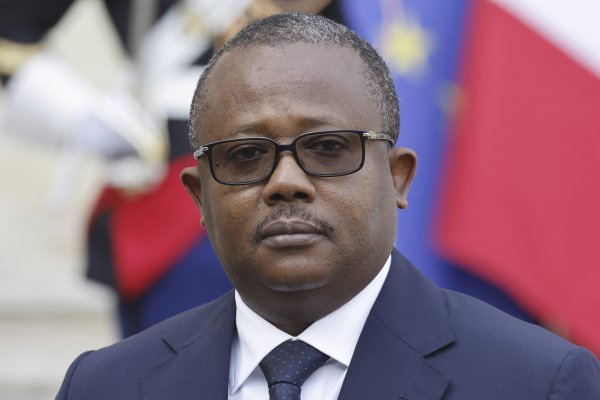WEEKLY REPORT: Developing Delta State Through Transport Infrastructures By Abai Francis

Transport infrastructures such as roads, bridges, tunnels, railways, trams, and airports are essential in the land development of any place or location. They primarily give access to, and secondarily help to grow commerce. Efficient transport infrastructures make movement easy and timely for both goods and passengers; they also preserve resources by reducing cost and increasing savings for both producers and consumers alike. In addition, they help beautify the landscape of any place, further fueling the architectural beauty of such a location.
The importance of transport infrastructures is so glaring that they should be accorded their rightful place in the land development of any place. This is why governments in the so-called advanced countries keep building and improving on roads, bridges, railways and other vital transport infrastructures to link-up with even the remotest parts formerly inaccessible, knowing that such projects will in the long-run yield overall positive developments of its economy, as no one should be cut-off from contributing their quota to national development and growth.
Unfortunately, and quite pathetic too, is the poor attention given to this vital land investment infrastructures in oil-bearing Delta State that ranks as one of highest federal revenue earner. To give a glimpse of the revenue accruing to the State, in a report published on 3rd April 2023 in the Punch online newspaper, "Data sourced from 43 monthly reports of the Federation Accounts Allocation Committee, as released by the National Bureau of Statistics indicated that Delta State got the highest allocation during the period under review, while Akwa Ibom and Rivers states followed. The 36 states in Nigeria shared a total of about N9.3tn as federal allocation between June 2019 and December 2022, a period of 43 months... it was observed that Delta State got the lion share of about N843.8bn, Akwa Ibom received about N643.2bn, while Rivers got about N642bn."
As an oil state that receives such a huge revenue allocation plus the 13 percent derivation, one would think that the state will be among the top states in Nigeria with well-planned transport infrastructures. But that is not the case. Visits to most of its popular cities such as Warri, Effurun, Osubi, Ughelli, Patani, Sapele, to mention a few, will reveal the attitude of its government to this vital investment infrastructure as most of its sole transport means—roads, are in either poor or bad shape.
For instance, looking at the network of roads infrastructure, it is not difficult to notice that no proper plan was accorded most of their creation. Despite Delta state situated close to the South Atlantic Ocean, you still discover that there are no proper well-planned drains accompanying its roads to help channel rain water to the ocean, a situation that always lead to flooding on most inner city roads, exacerbating their quick failure and costing the government more money in terms of maintenance and reconstruction. Also, one would think that as a coastal state, the government would harness water as an alternative means of transport to reduce traffic on its poorly planned and constructed roads. Moreover, the need for railway to ease long distance travels is also neglected with such mode of transport no where to be found and within control of the state.
There is also the case of orphan road (a term that is used to refer to a road with no economic or productive benefit). Such roads are rampant in the coastal areas of the State, a location where the state derives more of its revenue from. These roads, majorly concrete, are connected to no where, and could best be described as walk-ways. As of the date of publishing this report, inhabitants of coastal cities still rely on water transport services provided by local operators (which is quite expensive than road transport) to conduct their economic activities, fueling the high cost of living and exacerbating poverty in those areas.
But why is Delta state underperforming in transport infrastructures despite it being a huge revenue earner? The answer lies in corruption and the placing of personal-interest above that of the state. Corruption as a social scourge is so vile in the state that the allocation of road projects is geared towards one thing only—lining the pockets of cronies—rather than for economic benefits. This also contributes to poor execution of road projects which are most of the time concession to affiliate companies having no track record of performance. Any wonder then why most roads are back to a state of disrepair no sooner they are commissioned due to the use of shoddy materials for huge profitable gains?
It is on record in the state that since its creation in August 27, 1991, no other administration other than that of Chief James Onanefe Ibori made significant milestone in roads infrastructure. After then no follow up was accorded that action because there was no plan. And while the administration of Governor Ifeanyi Okowa dubbed 'The Road Master' is commended for awarding some inner-city roads in the coastal areas as part of developing those neglected areas, we believe that the state could have achieved much more than those orphan roads if there exist a blueprint for transport infrastructures in the state. Commerce is everywhere and it should be the primary objective of a responsible government to increase its revenue earning capacity as well as utilise them judiciously by investing massively in well-planned transport infrastructures in order to connect more people together for trade, and in return earn more revenues through taxation.
We have reason to believe that the lack of attention given to transport infrastructures, particularly in Delta stems from the fact that the state is a beneficiary of federal allocation, a feeding-bottle system that has made state governments very lazy in their thinking abilities, as these believe that money will always come to them from the national treasury. But whether such attitude will change if Nigeria truly adopts true federalism remains in contention because most public leadership are not about service to the people, but the people serving their interests. All the same, state governors need to sit up and put on their thinking caps of what ought to be done to not only drive revenues to their coffers but invest them strategically for the future. And one of such investments that should top their development agenda should be transport infrastructures!
We believe that the Delta state government can therefore drive the state's development and growth through efficient transport infrastructures, which are part of investment for present and future gains. And to begin, there need to be a long-term blueprint in the state for its transport infrastructures. If such a blueprint was in existence for the past 20 years, the state transport architecture would have been much better than it currently is. No place can develop in the absence of efficient transport infrastructures.
So, we recommend that the government of Delta state set up a special agency to help develop and design its transport infrastructural plans, to source for funds for their execution, to engage or partner with reputable developers, and manage such infrastructures. Such a blueprint should also take into cognisance the economic objective of transport infrastructures which is largely to aid massive flow of commerce, attract investors, and bring about employment opportunities.
Therefore, transport infrastructures that cut across lands (roads, railways, trams, cargo airports) and on water (bridges, tunnels), should be looked into. The state government should begin to diversify from its sole dependence on just roads to embrace other means of transportation so as to reduce pressure and increase their lifespan. Also, the waste in the execution of roads and all other transport infrastructural projects should be eliminated by ensuring that well-proven and well-tested hands are awarded such projects without bias. The recent award of over N150 billion for a road project by the Rivers state government to the construction giant, Julius Berger Nigeria Plc in the oil-rich state, should be an eye opener.
#penglobalreport #penglobalcommunity #transport #Delta



